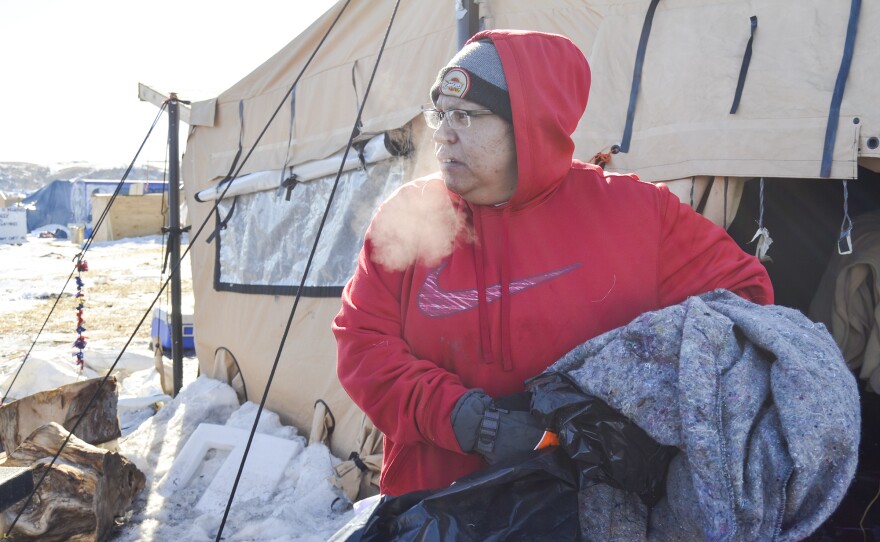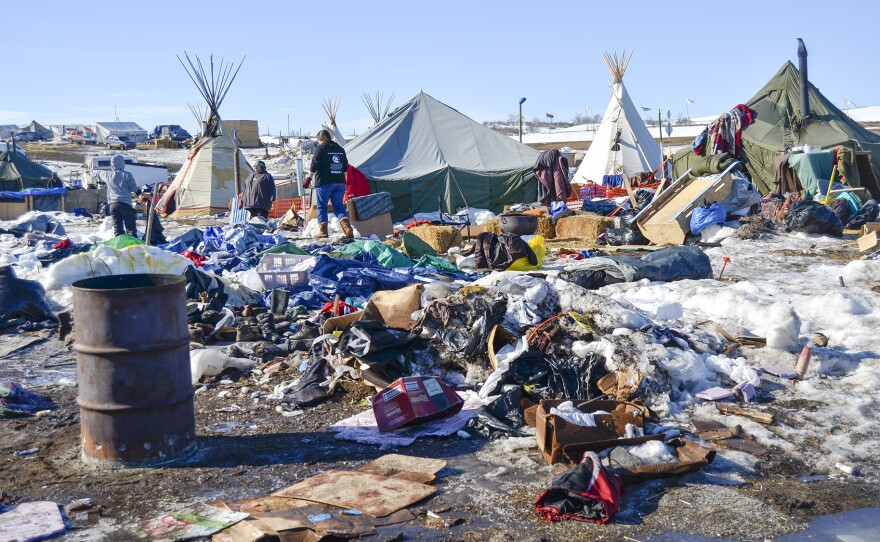
In North Dakota, authorities set Wednesday as the deadline for the dwindling number of protesters against the Dakota Access pipeline to clean up and go home.
At the main protest camp, a massive cleanup effort has been underway. Semi trucks have been hauling debris out of camp and people here are piling garbage into bags.
"It looks like a trash pile. But it's getting picked up and every spot is starting to look better and better as we work together," Dotty Agard of the Standing Rock Sioux tribe says as she sorts through abandoned goods.
The Army Corps wants protesters out so it can clean up its land before the river thaws and floods the camp. Some protesters are moving to higher ground nearby on the Standing Rock reservation. But there is concern that after months of violent protests, it may take law enforcement to remove those who won't budge.
Morton County Commission Chairman Cody Schulz is concerned about how protesters will respond to decisions made in Washington. At the urging of President Trump, the Army Corps this month granted a final permit to build the last stretch of the pipeline. Standing Rock is fighting that in court.
"They had some hope and a cause," Schulz says. "There's the fear I think from law enforcement that maybe some of that hope may be diminishing and desperation sometimes can set in."
Dana Yellow Fat is helping clean up. He says there's a lot of anger toward Indians right now. He describes hateful Facebook comments and says tribal members are afraid to leave the reservation.
"I might have a different skin color than you, but we still both bleed red," he says. "My culture and my ways might differ from yours, but we can still be friends."
Once this pipeline saga eventually ends, the Standing Rock tribe and North Dakota will have to figure out how to live side by side all over again.
Amy Sisk reports for Prairie Public Broadcasting and for Inside Energy, a public media collaboration focused on America's energy issues.
Copyright 2017 Prairie Public Broadcasting. To see more, visit Prairie Public Broadcasting.






